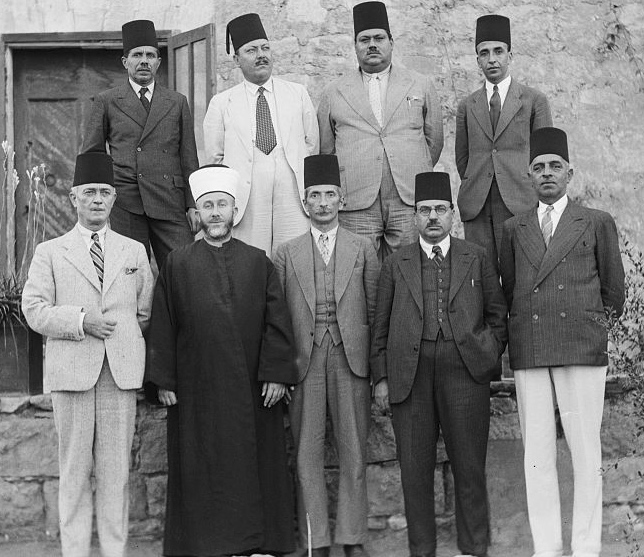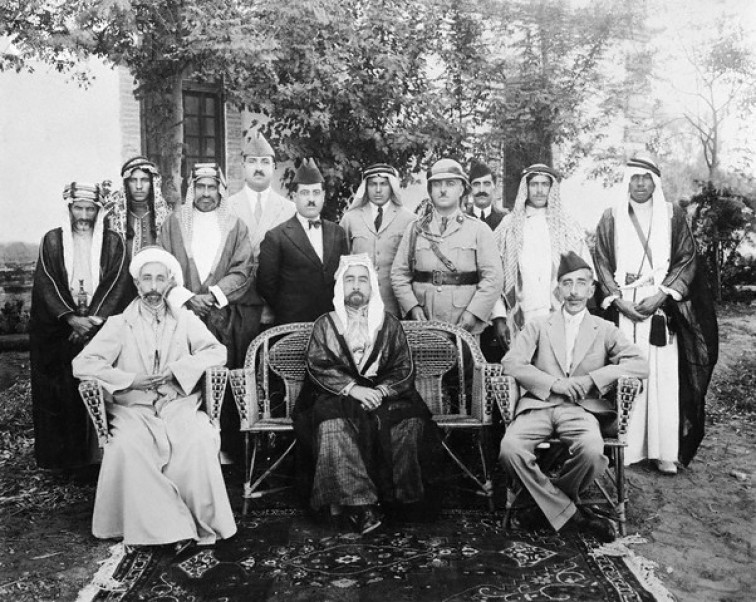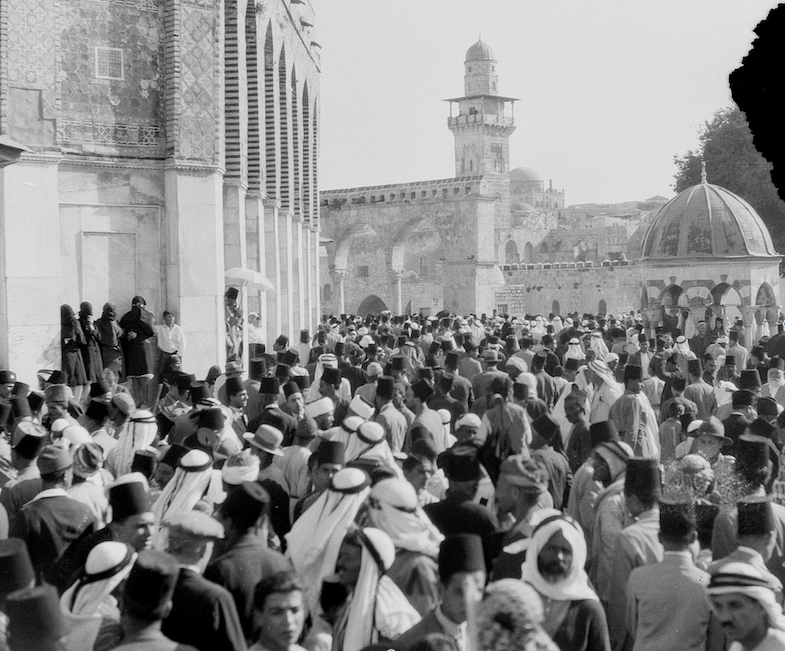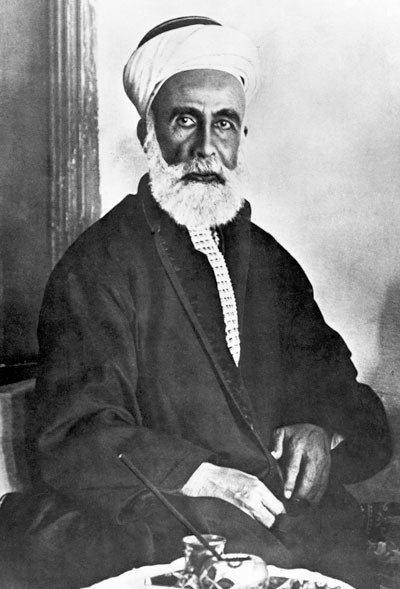|
Supreme Muslim Council
The Supreme Muslim Council (SMC; ar, المجلس الإسلامي الاعلى) was the highest body in charge of Muslim community affairs in Mandatory Palestine under British control. It was established to create an advisory body composed of Muslims and Christians with whom the High Commissioner could consult. The Muslim leaders, however, sought to create an independent council to supervise the religious affairs of its community, especially in matters relating to religious trusts (waqf) and shariah courts. The British acceded to these proposals and formed the SMC which controlled waqf funds, the orphan funds, and shariah courts, and responsible for appointing teachers and preachers. The SMC continued to exist until January 1951, when it was dissolved by Jordan and its function transferred to the Jordanian Ministry of Awqaf. A SMC was reconstituted in the occupied territories in 1967 as the judicial authority of the Muslim community in Israel in matters of personal status of ... [...More Info...] [...Related Items...] OR: [Wikipedia] [Google] [Baidu] |
Nonprofit Organization
A nonprofit organization (NPO) or non-profit organisation, also known as a non-business entity, not-for-profit organization, or nonprofit institution, is a legal entity organized and operated for a collective, public or social benefit, in contrast with an entity that operates as a business aiming to generate a Profit (accounting), profit for its owners. A nonprofit is subject to the non-distribution constraint: any revenues that exceed expenses must be committed to the organization's purpose, not taken by private parties. An array of organizations are nonprofit, including some political organizations, schools, business associations, churches, social clubs, and consumer cooperatives. Nonprofit entities may seek approval from governments to be Tax exemption, tax-exempt, and some may also qualify to receive tax-deductible contributions, but an entity may incorporate as a nonprofit entity without securing tax-exempt status. Key aspects of nonprofits are accountability, trustworth ... [...More Info...] [...Related Items...] OR: [Wikipedia] [Google] [Baidu] |
Sa'id Al-Shawa
Hajj Sa'id al-Shawwa ( ar, الحـاج سعيد الشوا) (1868–October 1930) was a Palestinian Arab politician and the first mayor of Gaza, serving from 1906 to 1917. He was also one of the most influential members of the Supreme Muslim Council from 1921 until his death. He was an opponent of British mandatory rule in Palestine, supporting the Ottomans during World War I and later the nationalist Grand Mufti of Jerusalem, Amin al-Husayni. Political career Mayor of Gaza Al-Shawwa was born into the prominent Shawwa family of Gaza, and his father Mohammed Khalil Al-Shawwa served as the chairman of the Municipality of Gaza when it was founded in 1893. Before entering politics, Sa'id was involved in a career as a grain exporter.Palestinian Personalities - S |
Arab Higher Committee
The Arab Higher Committee ( ar, اللجنة العربية العليا) or the Higher National Committee was the central political organ of the Arab Palestinians in Mandatory Palestine. It was established on 25 April 1936, on the initiative of Haj Amin al-Husayni, the Grand Mufti of Jerusalem, and comprised the leaders of Palestinian Arab clans and political parties under the mufti's chairmanship. The committee was outlawed by the British Mandatory administration in September 1937 after the assassination of a British official. A committee of the same name was reconstituted by the Arab League in 1945, but went to abeyance after it proved ineffective during the 1948 Arab-Israeli War. It was sidestepped by Egypt and the Arab League with the formation of the All-Palestine Government in 1948 and both were banned by Jordan. Formation, 1936–37 The first Arab Higher Committee was formed on 25 April 1936, following the outbreak of the Great Arab revolt, and national committees w ... [...More Info...] [...Related Items...] OR: [Wikipedia] [Google] [Baidu] |
Hashemite
The Hashemites ( ar, الهاشميون, al-Hāshimīyūn), also House of Hashim, are the royal family of Jordan, which they have ruled since 1921, and were the royal family of the kingdoms of Hejaz (1916–1925), Syria (1920), and Iraq (1921–1958). The family had ruled the city of Mecca continuously from the 10th century, frequently as vassals of outside powers, and were given the thrones of the Hejaz, Syria, Iraq, and Jordan following their World War I alliance with the British Empire; this arrangement became known as the "Sharifian solution". The family belongs to the Dhawu Awn, one of the branches of the Ḥasanid Sharifs of Mecca, also referred to as Hashemites. Their eponymous ancestor is traditionally considered to be Hashim ibn Abd Manaf, great-grandfather of the Islamic prophet Muhammad. The Ḥasanid Sharifs of Mecca (from whom the Hashemite royal family is directly descended), including the Hashemites' ancestor Qatadah ibn Idris, were Zaydī Shīʿas until the l ... [...More Info...] [...Related Items...] OR: [Wikipedia] [Google] [Baidu] |
Temple Mount
The Temple Mount ( hbo, הַר הַבַּיִת, translit=Har haBayīt, label=Hebrew, lit=Mount of the House f the Holy}), also known as al-Ḥaram al-Sharīf (Arabic: الحرم الشريف, lit. 'The Noble Sanctuary'), al-Aqsa Mosque compound, or simply al-Aqsa Mosque (, ''al-Masjid al-Aqṣā'', lit. 'The Furthest Mosque'), * ''Where Heaven and Earth Meet'', page 13: "Nowadays, while oral usage of the term Haram persists, Palestinians tend to use in formal texts the name Masjid al-Aqsa, habitually rendered into English as 'the Aqsa Mosque'" * * * * PEF Survey of Palestine, 1883, volume III Jerusalem, p.119: "The Jamia el Aksa, or 'distant mosque' (that is, distant from Mecca), is on the south, reaching to the outer wall. The whole enclosure of the Haram is called by Moslem writers Masjid el Aksa, 'praying-place of the Aksa,' from this mosque." * Yitzhak Reiter: "This article deals with the employment of religious symbols for national identities and national narratives by us ... [...More Info...] [...Related Items...] OR: [Wikipedia] [Google] [Baidu] |
Hashemite Custodianship Of Jerusalem Holy Sites
Hashemite custodianship refers to the Jordanian royal family's role in tending Muslim and Christian holy sites in the city of Jerusalem. The legacy traces back to 1924 when the Supreme Muslim Council, the highest Muslim body in charge of Muslim community affairs in Mandatory Palestine, chose Hussein bin Ali (Sharif of Mecca) as custodian of Al-Aqsa. The custodianship became a Hashemite legacy administered by consecutive Jordanian kings. Jordan controlled East Jerusalem and the West Bank in 1948, and annexed the territories in 1951 until they were lost to Israel during the 1967 Six-Day War. Jordan renounced claims to the territory in 1988, and signed a peace treaty with Israel in 1994, whose 9th article states that Israel commits to "respect the present special role of the Hashemite Kingdom of Jordan in Muslim Holy shrines in Jerusalem" and that "when negotiations on the permanent status will take place, Israel will give high priority to the Jordanian historic role in these s ... [...More Info...] [...Related Items...] OR: [Wikipedia] [Google] [Baidu] |
Sharif Of Mecca
The Sharif of Mecca ( ar, شريف مكة, Sharīf Makkah) or Hejaz ( ar, شريف الحجاز, Sharīf al-Ḥijāz, links=no) was the title of the leader of the Sharifate of Mecca, traditional steward of the holy cities of Mecca and Medina and the surrounding Hejaz. The term ''sharif'' is Arabic for "noble", "highborn", and is used to describe the descendants of the Prophet Muhammad's grandson al-Hassan ibn Ali. The Sharif was charged with protecting the cities and their environs and ensuring the safety of pilgrims performing the Hajj. The title is sometimes spelled Sheriff or Sherif, with the latter variant used, for example, by T. E. Lawrence in ''Seven Pillars of Wisdom''. The office of the Sharif of Mecca dates back to the late Abbasid era. Until 1200, the Sharifate was held by a member of the Hawashim clan, not to be confused with the larger clan of Banu Hashim from which all Sharifs claim descent. Descendants of the Banu Hashim continued to hold the position until the 2 ... [...More Info...] [...Related Items...] OR: [Wikipedia] [Google] [Baidu] |
Hussein Bin Ali, Sharif Of Mecca
Hussein bin Ali al-Hashimi ( ar, الحسين بن علي الهاشمي, al-Ḥusayn bin ‘Alī al-Hāshimī; 1 May 18544 June 1931) was an Arab leader from the Banu Hashim clan who was the Sharif and Emir of Mecca from 1908 and, after proclaiming the Great Arab Revolt against the Ottoman Empire, King of the Hejaz from 1916 to 1924 and Caliphate, Caliph from 1924 to 1925. After the Abolition of the Caliphate, abolition of the Ottoman Caliphate he was briefly proclaimed Sharifian Caliph, Caliph until the invasion of the Hejaz by the Saudis the following year. He was a Hashemites#Ancestry, 37th-generation direct descendant of Muhammad, as he belonged to the Hashemite family. A member of the Dhawu Awn clan of the Qatadid emirs of Mecca, he was perceived to have rebellious inclinations and in 1893 was summoned to Istanbul, where he was kept on the Council of State. In 1908, in the aftermath of the Young Turk Revolution, he was appointed Emir of Mecca by the List of sultans of th ... [...More Info...] [...Related Items...] OR: [Wikipedia] [Google] [Baidu] |
Druze
The Druze (; ar, دَرْزِيٌّ, ' or ', , ') are an Arabic-speaking esoteric ethnoreligious group from Western Asia who adhere to the Druze faith, an Abrahamic, monotheistic, syncretic, and ethnic religion based on the teachings of Hamza ibn Ali ibn Ahmad and ancient Greek philosophers like Plato, Aristotle, Pythagoras, and Zeno of Citium. Adherents of the Druze religion call themselves " the Monotheists" or "the Unitarians" (''al-Muwaḥḥidūn''). The Epistles of Wisdom is the foundational and central text of the Druze faith. The Druze faith incorporates elements of Isma'ilism, Christianity, Gnosticism, Neoplatonism, Zoroastrianism, Buddhism, Hinduism, Pythagoreanism, and other philosophies and beliefs, creating a distinct and secretive theology based on an esoteric interpretation of scripture, which emphasizes the role of the mind and truthfulness. Druze believe in theophany and reincarnation. Druze believe that at the end of the cycle of rebirth, which is achie ... [...More Info...] [...Related Items...] OR: [Wikipedia] [Google] [Baidu] |
Jamal Al-Husayni
Jamal al-Husayni (1894-1982) ( ar, جمال الحُسيني), was born in Jerusalem and was a member of the highly influential and respected Husayni family. Husayni served as Secretary to the Executive Committee of the Palestine Arab Congress (1921–1934) and to the Muslim Supreme Council. He was co-founder and chairman of the Palestine Arab Party, established in Jerusalem in 1935, and in 1937 became a member of the first Arab Higher Committee, led by Amin al-Husayni, later becoming its chairman. During the 1936-39 Arab revolt he escaped first to Syria (1937) and then to Baghdad, Iraq (1939). He led the Arab delegation to the 1939 London Conference and was Palestinian representative to the Anglo-American Committee of Enquiry. Husayni was arrested by the British in 1941 and exiled to Southern Rhodesia. He was released at the end of World War II and returned to Palestine in 1946. He was an unofficial delegate to the United Nations in 1947-48. In September–October 1948 he wa ... [...More Info...] [...Related Items...] OR: [Wikipedia] [Google] [Baidu] |



.jpg)

